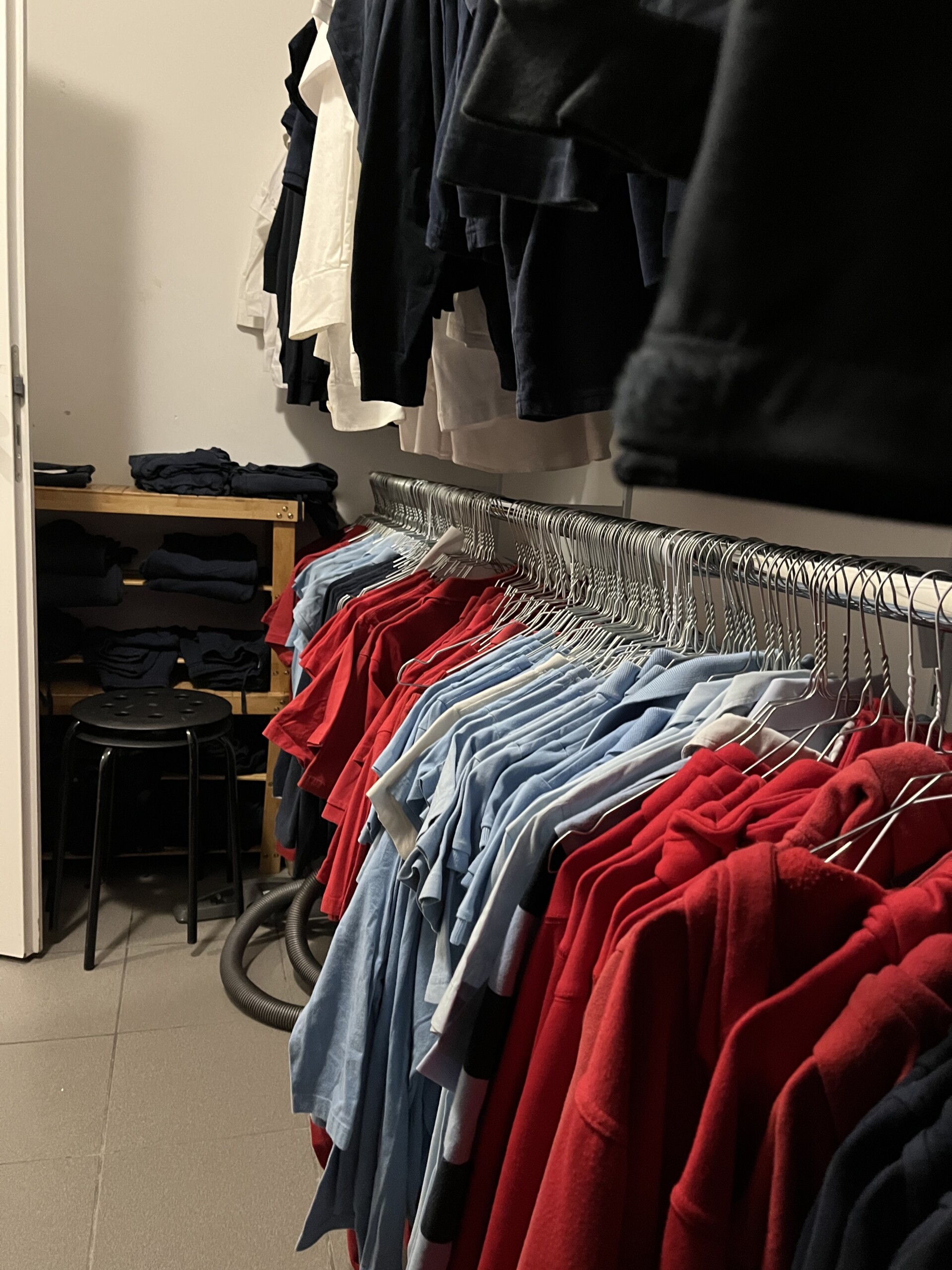Cosmo Swap: More than just second-hand school clothes
School uniforms are part of everyday school life at the Berlin Cosmopolitan School. It contributes to equal opportunities and justice in the community and reduces social pressure. The manufacturer Dress for School controls the quality and sustainability. However, that was not enough for parents, students and the school. For example, schoolchildren set up the online shop Cosmo Swap for second-hand school clothes. The aim of Cosmo Swap is sustainability in terms of the environment in the clothing industry and social justice. The shop can now be reached via the website https://cosmopolitanschool.shop.
Cosmo Swap
The purpose of wearing the school uniform is to prevent branding and prestige battles fought through the clothing. At the same time, the uniform school clothing promotes a sense of togetherness among the students.
The financial aspect of buying extra school clothes can be an argument against school clothes, but also for it. School clothes are cheaper than other clothes, but first, parents need to buy clothes for school in addition to ordinary clothes. Financially weak families in particular are then faced with a problem, because the purchase of school uniforms involves additional costs. On the other hand, students wear cheap school clothes instead of expensive branded clothes. Many parents like that. In the classroom, all students wear school uniform, regardless of their social background.
Wim Lukas Wende, a former student at the Berlin Cosmopolitan School, is the initiator and programmer of the online shop with Alec Eastmen. Eastmen explains: “Thrifty school clothes increase sustainability and save families on expenses. That’s why we created the online shop Cosmo Swap. Families can exchange school clothes that are in good condition for vouchers or donate the clothes.” The school clothes are sold cheaply at Cosmo Swap. 100 percent of the proceeds go to the financial support of students. Wim Lukas Wende emphasizes: “It is important to us that the clothing is preserved and can be used again. This is how we save resources with Cosmo Swap, which ultimately has a positive effect on the environment. When implementing Cosmo Swap, we agreed right from the start that we wanted to contribute to equal opportunities with our project by providing cheap school clothes.”
School clothing and sustainability
During the initial production of the school clothes, care is taken to ensure that the clothes are manufactured fairly and are free of harmful substances. In addition to fair working conditions, the Berlin Cosmopolitan School cares about the environment. Therefore, the goal is for the entire collection to be switched to organic cotton and recycled polyester by 2023 at the latest. The clothing should then be certified with the MADE IN GREEN by OEKOTEX label and also receive the Green Button meta-seal. In addition, the school has always covered the cost of school uniforms for families without income.
Yvonne Wende, founder and director of the Berlin Cosmopolitan School, says about the decision for the school uniform: “By wearing the school uniform, we want to give our students two essential things: fairness and sustainability. It should be possible for everyone to develop their individual potential free of constraints at our school. Through sustainably manufactured clothing, which is now also available second-hand, we discuss topics such as sustainability, justice, equal opportunities and individuality. We encourage this important discourse through school clothing and we want to encourage parents, teachers, youth and children to have these important discussions.”
Yvonne Wende reveals that these discussions are not always easy and that it is primarily the teachers and parents who have to put up with them. These discussions are understandable from every perspective. “At the end of such a discussion about justice, sustainability and equal opportunities, everyone learned a lot.”
About the Berlin Cosmopolitan School, Preschool and Kindergarten
The Berlin Cosmopolitan School is changing the traditional way schools and kindergartens work with different approaches to learning in the areas of nature and environmental protection, sports, new work, culture, dance, music and art and much more. The aim of the independent school, preschool and kindergarten is to bring all students along according to their abilities.
“When school motivates, everyone learns more” is the conviction of the Berlin Cosmopolitan School. Regular outdoor learning, sports activities and competitions, digital projects such as robotics, internships from grade 6, music-making from kindergarten age, dance clubs, bilingual education and much more help the children to discover and develop their own preferences and abilities.
Important concerns of the Berlin Cosmopolitan School, Kindergarten and Preschool are social justice, equal opportunities in education and a balanced community. The school regularly awards scholarships to students and accepts refugees. Through its established network and internationally trained staff, the educational institution has the opportunity to explore new educational paths for every age group.
The Berlin Cosmopolitan School was founded in 2003 as a non-profit organisation by Yvonne Wende. In 2004, the first bilingual (English-German) kindergarten and preschool opened for Berlin-Mitte with 18 children. Shortly after, the primary school started and most recently, in 2009, the accredited bilingual Gymnasium of Berlin Cosmopolitan School 01P22. Since then, the number of students has steadily increased. Approximately 1,000 students from all over the world are now being taught on the Rückerstraße and Invalidenstraße campuses. The kindergarten has grown to a number of more than 300 children between the ages of 1 and 6.
In 2013, Berlin Cosmopolitan School was accredited as an International Baccalaureate (IB) World School, first for primary school and also for the Gymnasium. The IB Learner Profile is about developing children and young people into lifelong learners. The school and kindergarten use primary experiences to design lessons.
